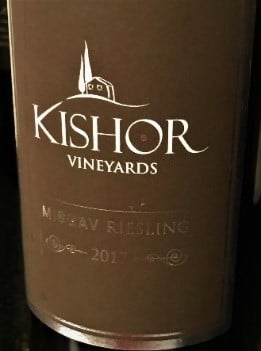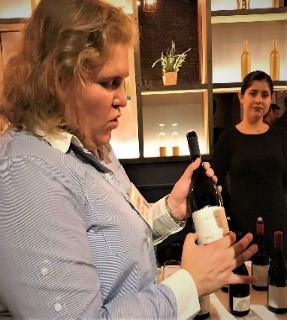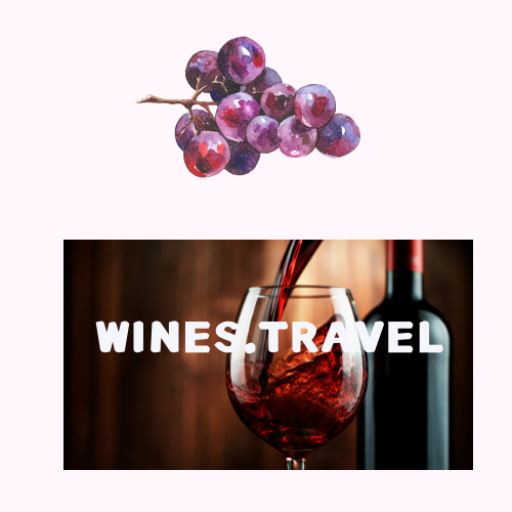Israel Captured in a Delicious Bottle of Wine: Pair with a Side of Politics
Israel is a small country (in the Eastern Mediterranean), with an ancient wine culture (Chalcolithic Era, 4000 BCE) that successfully meets the 21st century wine demands of sommeliers, consumers as well as food and beverage managers.
What is Old is New Again
Wine making in Israel is not a new skill. Ellen Walsh (Viticulture in Ancient Israel) writes, “Viticulture was practiced throughout Israelite history quite simply because it both thrived in the environment and offered worthwhile social and economic benefits to the society.” Wine Spectator magazine praised Israel for its ability to “blend its old-world winemaking techniques with modern sensibilities and tastes.” Lior Lacser, winemaker at Carmel Winery has determined that, “Israel is a great place to make wine.”
Sinful or Soulful
Some historians think that wine caused the problem between Adam and Eve finding that the tree of knowledge was actually a grapevine and the fruit was a grape. Hebrew Scripture suggests that God brings forth, “wine that gladdens the human heart” (104:15) and the pharaohs of Egypt selected Canaanite wine in the Bronze Age. There even was a time when Egyptians accepted wine as payment for taxes.
Remember Noah? The first thing he did after everyone left the ark – he planted a vineyard (Book of Genesis 20-21), “And Noah began to be a husbandman, and he planted a vineyard. And he drank of the wine and was drunken; and he was uncovered within his tent;” fortunately, Shem and Japheth discovered him naked and covered him with a cloak.
In archeological digs, pieces of wine presses dating back 8-10,000 years have been located in the region. When the Romans were in power (8th -7th century BCE), Israeli wines were exported to Rome and growing vineyards was one of the most profitable industries, second only to piracy on the high – seas. Wine was a popular beverage and Jewish families consumed an average of 350 liters of wine each year.
It was only the Islamic invasion in the 7th century that stopped the expansion of the new industry. Islamic law required that the vineyards be eliminated and the indigenous varieties be ripped out of the ground. During the Crusades (12th century CE) there was a brief return to the wine industry; however, Islamic law resurfaced and the Jewish diaspora ended the project.
19th Century Resurgence
In 1870 the Mikveh Israel Agricultural School opened, vines were planted, viticulture classes were introduced and a very large wine cellar was constructed. In 1882, Baron Edmond de Rothschild (Lafite Rothschild) brought French grape cuttings to Israel, established the Carmel Winery, and this jump started the Israeli wine industry.
Creating a Market
During the first part of the 20th century there was no market for Israeli wine and winemakers focused on making inexpensive kosher wine for Jewish communities around the world. Frequently these wines were very sweet, made from high yielding grapes with a focus on quantity and not quality. Fortunately, in the 1960s, Carmel Winery started to make dry wines from Bordeaux varieties using cuttings Rothschild brought from his family’s estate. The Carmel winery attracted winemakers from Australia, California and France, bringing their winemaking skills to this young industry.
Wine Today
The best area for viticulture is between 31-33 degrees north – the area from the Dead Sea to Dan. The wines of Israel have made major strides over the last decade and today there are more than 300 wineries, producing 40 million bottles annually – from the Tuscan-esque Galilee in northern Israel to the barren Negev Desert.
Domestic Israeli wine consumption weighs in at 6 liters (12.6 pints) per year per person, an increase from last year of 4 liters (8.45 pints) per person. However, the Israelis have room to grow as the wine consumption in France and Italy tops in at about 60 liters (126.8 pints) per person.
The Israel Export Institute has determined that the country’s three largest wineries control over 83 percent of the local market. Carmel harvests 57 percent of the country’s grapes, Barkan harvests 15 percent and Golan Heights Winery harvests 11 percent. These three operations are developing new wineries: Carmel (Ramat Arad in the hills of the northern Negev), Barkan (Kibbutz Hulda, Samson region) and Golan (starting a winery in the Upper Galile. Other wineries extending their reach include Efrat, Binyamin, Tishbi, Dalton and Castel.
In the last decade, wine purchases have expanded from supermarkets, with limited selections, to specialty wine stores that carry everything from wines to accessories and wine refrigerators. Wine courses and wine-tastings are popular.
Israeli Wine and Politics
Israeli winemakers face a myriad of challenges including, in some cases, having to lease plots from the state. The good news is that Israeli wines and vineyards qualify for institutional support from the Israeli Ministry of Agriculture and in the March 3, 2017 agreement, Israeli citizens residing on both sides of the Green Line (with income produced or grown from grapes in the West Bank) became eligible for Ministry of Agriculture grants awarded under the Law for the Encouragement of Capital Investments in Agriculture.
Without considering the merits of the wines, the West Bank wineries have become controversial. Israel Hayom wine writer Yair Gat, and restaurant consultant Gal Zohar (The New Israeli Wine Guide) have refused to include wineries from the West Bank Settlement in their newest book.
The European Union has determined that only Israel’s pre-1967 borders are acceptable to them in determining which wine-growing regions are fully and legitimately Israeli, denying the existence of two important wine growing regions, Golan Heights and Shomron (located in Judea and Samaria/West Bank). Wines made in these regions are excluded from the Israel Free Trade Agreement resulting in the need for special labeling: Product of Israel – NOT ALLOWED! Labeling of wine bottles for the EU requires clarification – such as Product from the Golan Heights (Israeli settlement). The Canadian government claims that West Bank wines cannot be labeled Made in Israel.
According to Professor Eugene Kontorovich, a US – Israel professor of international law, “The sole basis of the ruling was that Made in Israel labeling confuses consumers.” The court cited absolutely no evidence that any substantial number of consumers (who might care one way or another about a product’s origin in Judea and Samaria) were actually “confused.”
Ambassador Ido Aharoni Aronoff, Principal, Emerson Rigby Ltd, finds that “…consumers do not really care. Israel’s wine industry experienced dramatic growth in the past 15 years, despite years of political turmoil…Israel exports roughly $22 million dollars’ worth of wine a year, according to the Central Statistics Bureau.”
Investments in Wine Tourism
The Ministry of Tourism invests in tourism infrastructure with a focus on niche markets and this includes wine tourism. In 2018, the tourism development budget reached 445 million shekels (Gabriela Davidovich-Weisberg, www.haaretz.com, March 27, 2018) and agricultural tourist attractions on the West Bank and the Syrian Golan (Gush Etzion Winery and Psagot Winery) are promoted on the official website of the Israeli Ministry of Agriculture.
Markets
Beginning in 2009, Israeli wine exports increased by 118 percent led by North America representing the largest export market accounting for 66 percent of exports (2017) totaling US$31 million. Other countries importing Israeli wines include France, UK, Canada, Poland, Germany, and Asia with 35+ percent shipped to Western Europe and the remainder shipped to 30 countries on 5 continents.
The fastest growing market is Asia, accounting for 5 percent of total Israeli exports. Over the next 5 years China is expected to become the world’s second largest wine market – after the USA. To support the growth of the China market, Hayotzer Winery (Mishor Adumim settlement industrial zone; West Bank) signed a preliminary agreement with the China- based Pen Dun Group to jointly build an US$8 million winery in the Hubei province in China.
In Japan, Israel is the 17th largest supplier of wines, with exports rising by 145 percent from 2014-2015. Exports to the European Union and Latin America declined between 2016 and 2017 by 4 percent and 12 percent respectively.
Grapes
Research suggests that the vines started in the mountains of Ararat (modern Armenia); however, some think that they originated in the Shiraz region of Persia. The most popular grape varieties include Cabernet Sauvignon (19 percent), Carignan (13 percent), Merlot (12 percent), Shiraz/Syrah (7 percent), Petit Verdon (6 percent), Argaman (5 percent), Colombard (4 percent), Muscat of Alexandra (54 percent), Chardonnay (3 percent), Petite Sirah (3 percent), Sauvignon Blanc (2 percent), Emerald Riesling (2 percent), Cabernet Franc (2 percent), Malbec (2 percent), Tempranillo (1 percent) Gewurztraminer (1 percent) and Viognier (1 percent).
Carignan and Colombard are usually used in inexpensive blends with international varieties proving both popular and suitable for the climatic conditions in Israel. To date, the most successful are the Bordeaux varieties although the Mediterranean varieties may be more sustainable over the long term.
Most wines made in Israel are marked as Kosher (95 percent) with 55 percent of the wineries considered Kosher and 45 percent Non-Kosher.
Wines of Israel Event
At a recent Manhattan Wines of Israel event, hundreds of wines were presented to wine buyers, sommeliers, food and beverage managers, journalists and other wine professionals. My personal favorites include:
- Yatir Winery
Yatir Winery is located in Tel Arad, an area known for its archaeological mound west of the Dead Sea and surrounded by the mountain ridges of the Arad Plain. The vineyards are planted on a hill, 900 meters above sea level on the outskirts of the Yatir Forest. The climate is a mix of cool, breezy mornings; dry, sunny days; cold nights with snow in the winter. The terroir presents well-drained limestone, rich with chalk and clay. The vine crops remain naturally low creating the ideal conditions for growing quality red grape varieties.
Yatir Winery was started in 2000 as a joint venture between local vine growers and the Carmel Winery; today the wines have been recognized and rewarded in national and international wine competitions. Ya’acov Ben Dor is the founding CEO of the winery and manages the vineyards in the South Hebron Hills. He is also responsible for marketing and offers tours of the Yatir Forest and vineyard areas. The winemaker is Eran Goldwasser, a graduate of Adelaide University (Australia) who was previously associated with Carmel Winery. As of 2012 the annual production was about 150,000 bottles.
Notes.
- Yatir Rose 2018. Grenache, 53%; Mourvèdre, 35%; Tempranillo, 12%. Grapes from several vineyards in Yatir Forest, elevation of 680-780 meters above sea level. Grapes macerated with skins then fermented and matured in stainless steel vats before pressing. After fermentation, wine remains in vats until bottling.
To the eye, pink coral; the nose finds cantaloupe, raspberries, peaches and flowers, leaving behind memories of yellow cherries, Seville oranges and marzipan. A very fruit forward rose that pairs well with turkey, chicken as well as Mediterranean, Israeli and Asian cuisine.
- Yatir Mt. Amasa Red 2014. Petit Verdot, 32%; Cabernet Sauvignon, 27%; Syrah, 21%, Malbec, 20%. Grapes harvested from several sections of the Yatir Forest at an elevation of 650-900 meters above sea level. The soil is clay and limestone. The wines from each vineyard are aged separately in small oak barrels for 12 months before creating the final blend. The wine is then matured in bottle for two years before release.
Deep purple to the eye. The nose finds ripe raspberries and spice. Tannins add complexity and dimension to the palate and accentuates the cherry, strawberry, cocoa and rose petal experience. Pair with steak.
- Somek Winery
Started in 2002 by Barak and Hila Dahan, a fifth-generation vintner in Zichron Ya’akov. Barak is familiar with every part of the vineyard and uses traditional manual vineyard methodology to nurture outstanding quality grapes. Hila has a degree in agriculture science from Hebrew University and extended her studies in enology at Adelaide University in Australia.
The winery is located in the foothills of Zichron Ya’akov and has been in the Daham family since 1882. The first Dahan arrived in Israel from Romania with 51 other families to settle the farming village of Zamirin. Although the original attempts were unsuccessful, the intervention of Baron Edmond de Rothschild turned the project into a triumph as he decided to build a winery (Carmel Winery) for the settlers so that they could support themselves. Initially the wines were not up to the Rothschild standards for quality; however, 120+ years later, Carmel Winery has finally achieved international recognition and the Dahan family continues to grow grapes for Carmel.
Notes.
- Somek Carignan 2011. Carignan, 100%.
Produced from oldest vines in the country (40 years), creating a luscious deep purple hue that trends to pale pink. Nice level of tannins adds depth to the palate delivering an earthy, robust, spicy taste experience, and ends with a long finish with suggestions of woods, chocolate and oranges. Wine is aged 24 months in French oak barrels and matures in bottle for two years before release. Pairs well with Catalan sausage, spicy lamb meatballs and eggplant lasagna.
- Covenant Wines. Syrah 2016. Syrah, 90%; Cabernet Sauvignon, 10%.
Jeff Morgan and Leslie Rudd started Covenant Israel (2013) in the Galilee region of the country and teamed with Israeli/America winemaker Ari Erle to create the winery. Today it is the only American winery making wine in both California and Israel. The project started modestly in the Galilee with a few barrels (100 cases). Today the facility produces 10000 – 1500 cases of Syrah, Cabernet Sauvignon, Viognier and Rose from 6 different vineyards in the Galilee and Golan Heights. A new addition to the organization is Geoff Rochwarger who replaces Covenant co-founder Leslie Rudd who recently died. Rochwarger is an Israeli resident, business executive and wine collector and closely manages the Israeli operations.
Notes.
Grapes are grown in the Tel Faris Vineyard (Golan Heights), fermented with native yeast and aged in French oak for 18 months prior to bottling. A deep robust palate experience identifies plums, black cherry and blackberries. Look for spice and anise mixed with fruit. The tannins are soft and the wine pairs well with beef and venison.
- Kishor Winery. Misgav Riesling Semi-Dry 2017. Riesling, 100%
Founded by the Shomer Hatza’ir youth movement in the 1970s, it was temporarily abandoned until 1997. The first planting in 2007 with Bordeaux grapes was followed in 2010 to include Rhone varietals.
Located in the Kibutz Kishorit, the winery is also a home for adults with special needs and employs five permanent workers from the Kibbutz, increasing staff during the harvest. Directed by Richard Davis, and Oenologist/Wine Expert Itay Lahat, grapes were planted in 2007 with the first harvest in 2010.
At 500 meters above sea level, the Mediterranean breezes shield the vineyards from Israel’s hot summers, keeping this micro-climate warm in the daytime with cooler nights. The Terra Rosa soil is made from limestone deposits and perfect for Cabernet Sauvignon, Cabernet Franc, Petit Verdot, Syrah, Grenache, Sauvignon Blanc, Viognier and Riesling. The wines are estate bottled, with the grapes planted by Kishor on the outskirts of the community.
Notes.
The manually harvested grapes are fermented in stainless steel vats, producing a yellow straw color that delivers an intense lemon and apple nose along with floral aromas that are off-set by acidity and light minerality on the palate. Fermentation is deliberately stopped to leave residual sugar, creating a balance between acidity and sweetness. Final experience is long, sweet and balanced with a mild acidity making it a perfect pairing with fried or baked fish, roast chicken or grilled pork chops.










© Dr. Elinor Garely. This copyright article, including photos, may not be reproduced without written permission from the author.
